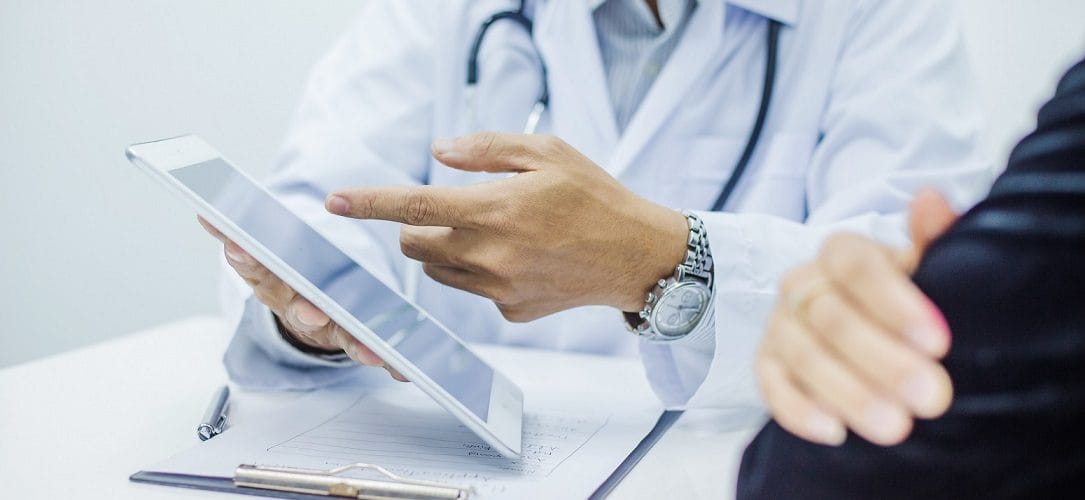

Every man who has undergone a vasectomy in the UK is sure to have thought seriously about the decision, and to have been advised by his NHS or another medical practitioner that the procedure should be considered permanent. But the fact is that lives change, circumstances change, and a new social or personal dynamic can lead to a change of heart.
In this article, we take a look at the realistic possibilities of pregnancy after vasectomy. We explain the broad principles of different courses of action and what you need to do if you or your partner should find yourselves in this situation. How to get pregnant after a vasectomy? There’s no 100% certain solution, but there is plenty of help available to give you a very good chance of success.
What are the realistic possibilities of getting pregnant after a vasectomy?
A normal vasectomy is a procedure in which the vas deferens, that is the two tubes that carry sperm from the testicles to the urethra, are severed. Having been told that this is intended to be a permanent procedure, men are also advised to use another form of contraception for a period of two to three months afterwards, as it can take this long for sperm to clear out of the system. But apart from the immediate aftermath, without intervention, pregnancy after a vasectomy is rare. There are some cases where the tubes spontaneously rejoin themselves, even after a number of years, but these too are very rare. Some authorities estimate these cases to be as few as one in 4,000 vasectomies.
So, clearly, if you have changed your mind about the vasectomy and you and your partner are hoping to become pregnant, you need to do more than hope for the best. Let’s look at some of the options.
How to get pregnant after a vasectomy
In broad terms there are two main options, vasectomy reversal or sperm extraction. The one your medical advisor chooses to recommend will depend on a number of factors. These include how much time has elapsed since the vasectomy, the age of your partner and the number of children that you are planning for your family.
Vasectomy reversal: what is it and what are the odds?
The procedure to reverse a vasectomy is simply to rejoin the two ends of the vas deferens that were severed. According to the UK’s Human Fertilisation and Embryology Authority (HFEA), it is possible to carry out a reversal in around 60% to 80% of cases. If it is successful, it does not guarantee a pregnancy, but you and your partner would have the same chances as anyone else. A vasectomy reversal would probably be your recommended option if your vasectomy was within the last 12–15 years, you are intending to have more than one child and if your female partner is under the age of 35.
The HFEA also points out that, unlike a vasectomy which is generally freely available on the NHS, a reversal is not normally funded by the NHS, so there is the matter of cost to take into account as well.
Sperm extraction
If a reversal operation is unsuccessful or not recommended for your circumstances, pregnancy after a vasectomy is still possible. In the surgical sperm extraction process, sperm is withdrawn either directly from each vas deferens or from each testicle. The procedure is carried out with local anaesthetic or possibly under general anaesthetic. Since the quantity of sperm obtained in this way is small, it is not recommended for artificial insemination, but would be followed by IVF fertilisation.
This could be your recommended option if your vasectomy was more than 15 years ago or if you are only intending to have one child, since afterwards you still have no need for other methods of contraception. It could also be recommended if your female partner is over 35 years old, when natural conception becomes decreasingly likely. You would probably achieve a pregnancy more quickly with the use of sperm extraction followed by IVF. It is also a less invasive procedure for you, an advantage which is counterbalanced by the fact that overall the IVF procedure would be more invasive for your female partner.
IVF following a sperm extraction procedure
In vitro fertilisation is of course the best known and most well-established assisted reproduction procedure. In the case of IVF following sperm extraction, the technique known as ICSI (intracytoplasmic sperm injection) would also be part of the process. In the simple IVF process, sperm and oocytes are mixed together in the laboratory and fertilisation takes place. In ICSI, less is left to chance as the sperm can be prepared and selected, followed by a single sperm being injected directly into the oocyte. For a helpful introduction to how these techniques work, take a look at the video about IVF and ICSI on our YouTube channel.
If you are one of the many people for whom circumstances have changed, and you are now looking for information on how to get pregnant after a vasectomy, there is light at the end of the tunnel. Currently in IVI, we have a 71.4% clinical pregnancy rate per embryo transferred in women under 38, using the woman’s own eggs. You may like to browse our website to become familiar with who we are and how we work. There you’ll also find our whole range of treatments and services as well as information on prices.
Getting in touch with IVI
If you would like to talk to us about any of the issues raised in this article, or arrange a consultation about your own circumstances, it’s easy to contact us. You can call our freephone number 0800 52 00 161, or use our online contact form and a specialist adviser will be in touch. We treat all personal information in confidence and we do not share it with other companies.





Comments are closed here.